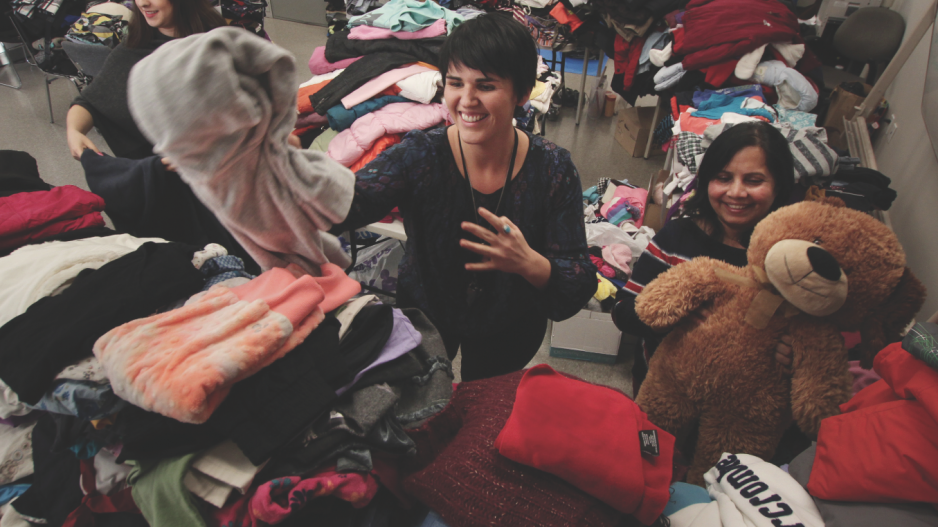From specialized banking services to temporary housing to employment, there are myriad ways businesses are planning to help in the effort to resettle the 1,900 Syrian refugees expected to arrive in B.C. by February.
“People want to do something. They see that we’re about to see an influx of Syrian refugees,” said Laura Mannix, manager of refugee and specialized services at Diversecity, an immigrant services agency in Surrey.
“The kindness and compassion is there. They’re just starting to reach out to see what they can do. I think a lot of folks don’t know what avenue they can go down.”
First, there’s money: Diversecity has already held one fundraiser and has set up a GoFundMe campaign. Money raised will go into a support fund for refugees to help pay for the many extras that government funds don’t cover, everything from diapers to bus tickets to dentistry. Other agencies such as Immigrant Services Society (ISS) and SUCCESS are also accepting donations.
Tony Singh, the owner of 18 Fruiticana grocery stores across the Lower Mainland, has decided to put together 500 grocery packages containing food that will be familiar to the refugees.
“I’m an immigrant who came to Canada 40 years ago,” he said. “I remember having food which I’m not used to, and I came not as a refugee but as an immigrant. Imagine coming from a war-torn country. You don’t know what you’re going to eat or what kind of shelter you’re going to get.”
 Tony Singh owns Fruiticana, a grocery store chain. He plans to donate food packages to new arrivals | Submitted
Tony Singh owns Fruiticana, a grocery store chain. He plans to donate food packages to new arrivals | Submitted
While developer Ian Gillespie made headlines recently with his offer of an apartment building for temporary housing, it didn’t stop there, said Chris Friesen, manager of settlement services at Vancouver-based Immigrant Services Society.
Developer Daljit Thind has offered seven apartments from properties he owns on Kingsway. Friesen said he’s also been “playing telephone tag” with Concert Properties.
Vancity credit union has a long history of working with ISS to help refugees set up bank accounts and obtain information about finances, said Linda Morris, vice-president of business development.
Vancity will be helping the Syrian refugees set up bank accounts and staff who speak Arabic or Kurdish will provide financial education.
Morris said the credit union has also developed several micro-finance loan products (up to $15,000) that can be used for career training, re-certification or starting a small business.
Vancity is working on developing some banking products specifically in response to the Syrian refugee migration; the credit union plans to reveal more details later this week.
Settlement agencies are also counting on businesses to help out in another important area: helping newcomers find jobs. ISS has received over 100 queries from companies and individuals about providing employment or mentorship.
“If there’s someone from Syria who has a similar background, whether it be a carpenter, an engineer or a lawyer, there are folks coming forward saying we’ll give a few hours of our time to help them navigate how they might be able to re-certify in their profession,” Friesen said.
However, current services for newcomers are already stretched thin, and it’s unclear whether government funding for several job placement programs will continue, said Susan Liu Woronko, manager of employment services at Diversecity. The programs include wage subsidy funding from the federal government, which can help persuade employers to participate.
A youth work placement program has been very successful with many repeat employers, Woronko said, but it’s been difficult to get employers to take on apprentices from a new trades training program, funded by B.C.’s Jobs Ministry.
Another barrier is language training: Friesen estimated that 95% of the Syrian refugees who will be coming don’t speak English. In Surrey, there is currently a four- to six-month wait for English-language classes, Woronko said. And lack of child care will be another challenge facing refugees.
For more information about helping refugees, visit the websites for Diversecity, Immigrant Services Society or SUCCESS.
@jenstden




